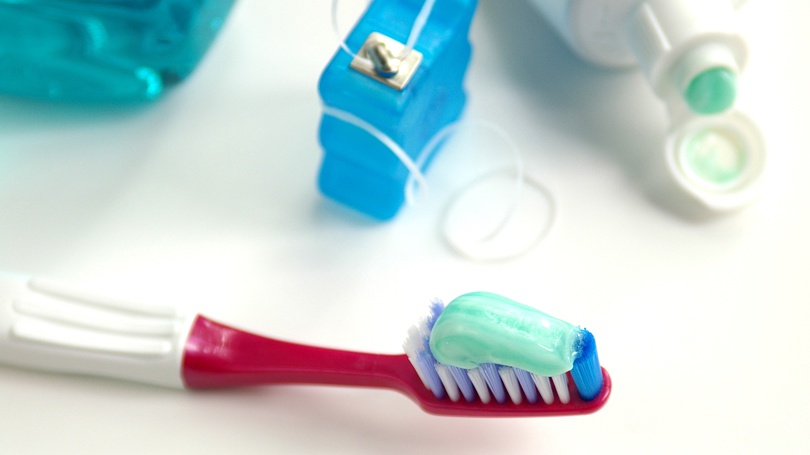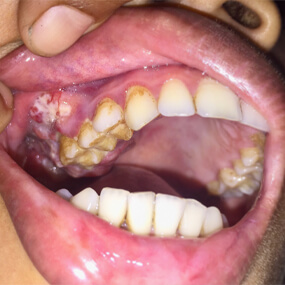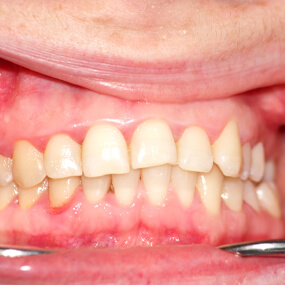Brush, Floss and Eat Your Way to Better Dental Health

Many people brush, floss, and rinse regularly without real confidence that their techniques are as effective as they should be. Parents not only have to be concerned about dental hygiene for themselves but their children as well. When we do something every day, it is easy to develop bad habits that quickly seem natural and correct, even if that is not the case. With that in mind, here is a quick refresher:
Brushing
The reason to brush your teeth is to remove as much plaque as possible. Plaque is a translucent bacteria-laden substance that accumulates on and between your teeth and along the gumline. Brushing eliminates much of that buildup and thus helps avoid cavities. The American Dental Association (ADA) recommends that adults and children brush twice a day and for at least two minutes each time. Brush every tooth—outside, inside, and top—with short strokes back and forth. Be gentle. Rigorous brushing is unnecessary and only serves to irritate your gums. Brush your soft tissues as well. These areas include your gums, the gumline, your tongue, and the roof of your mouth.
Flossing
Brushing can remove most plaque buildup but not all. This is where flossing comes in: cleaning between the teeth. The ADA recommends flossing daily because it disrupts the bacteria that accumulates between your teeth and along the gumline. This has the added benefit of stimulating your gums, which also helps to prevent gum disease. Wrap the floss around a middle finger. Dispense about a foot and a half of floss. Cut it. Wrap the other end around your other middle finger. Use your index fingers as guides as you floss between each and every tooth. You need to move a couple of inches back and forth. Curve the floss so that it cleans just below the gumline. But be gentle. Too much force can cause the floss to scrape or even cut the gums.
Eating
Did you know that the bad bacteria in your mouth feeds on sugar? In fact, sugar is the only natural food source for oral bacteria, which is why the ADA recommends diets low in sugars and starches. It starves the bad bacteria! You can improve your oral health by making a concerted effort to prepare meals with lean proteins and fresh vegetables. Processed foods, on the other hand, often have additives and simple carbohydrates. Parents should seek to limit snacks between meals and gravitate toward healthy options when the kids do snack. Intake of carbonated and sugary beverages should be reduced or even eliminated to cut down sugar consumption. Opt for water instead. Choosing water over other beverages not only starves the bad bacteria but helps to rinse the mouth as well.
Brush, Floss and Eat Well
Would you like personalized advice on how to brush, floss, and eat well? You can get that assistance as well as all the dental care you may require at Scottsdale Cosmetic Dentistry Excellence. Jeffrey D. Clark, DDS, is a leading cosmetic and restorative dentist serving the Greater Scottsdale area. If you have any questions about the services available or want to schedule an appointment, do not hesitate to call us at 480 585 1853.




